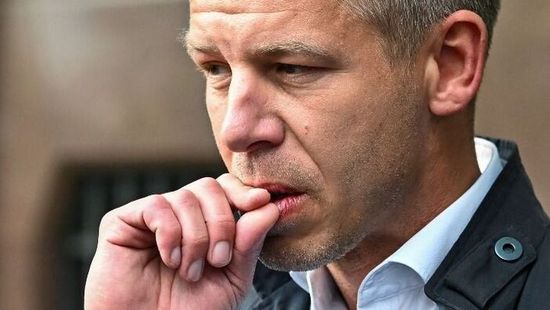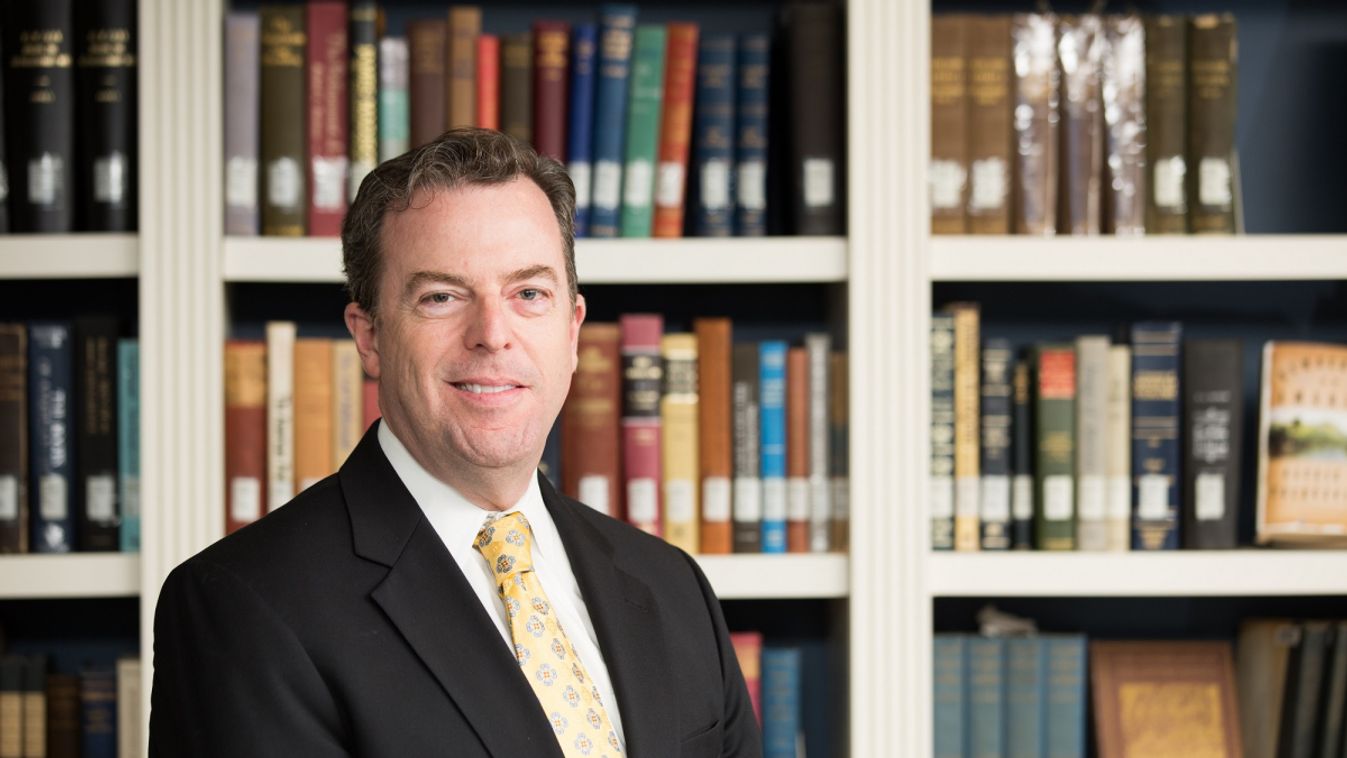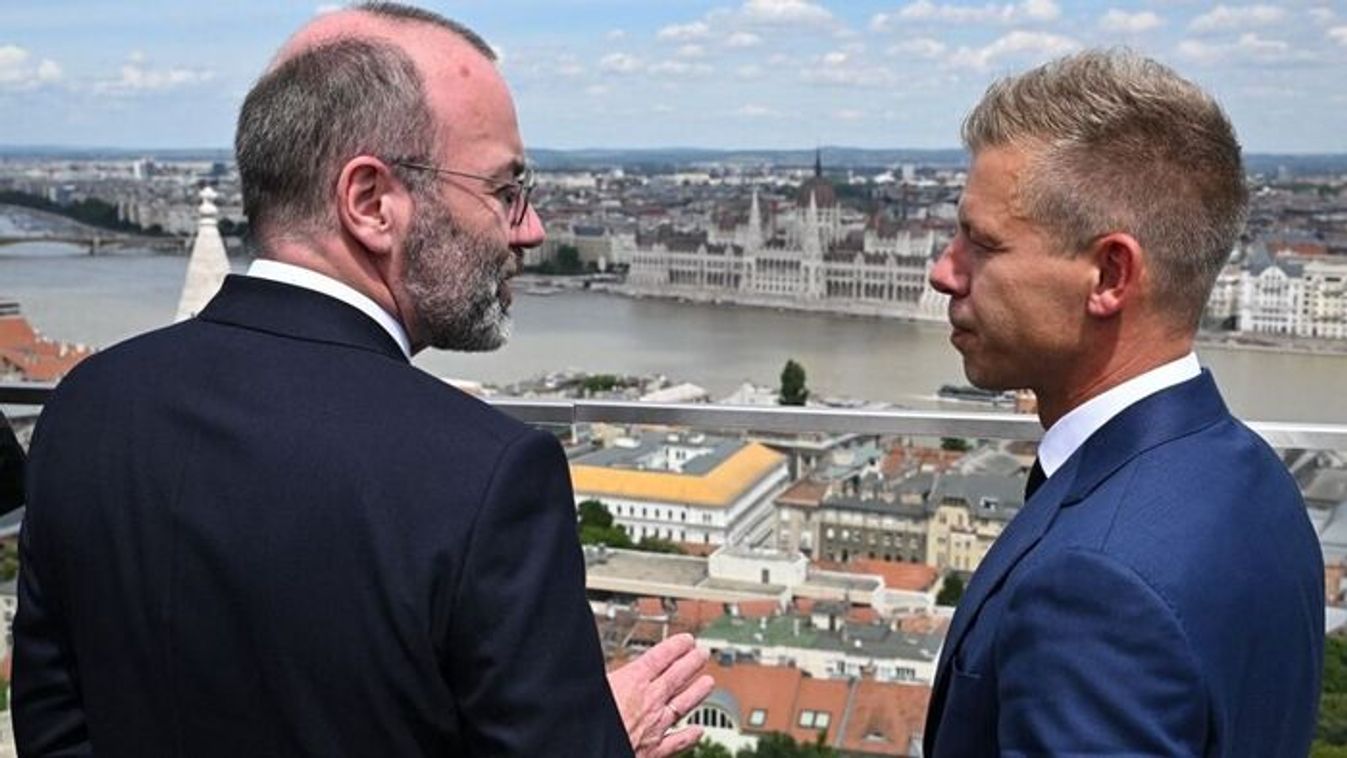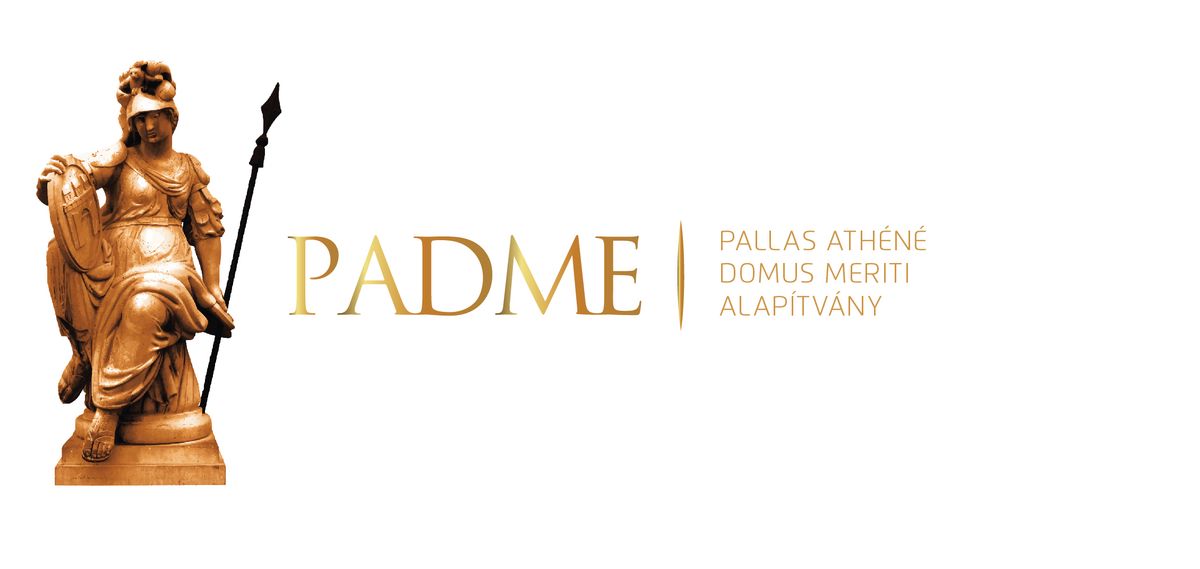Ez is napvilágot látott: Magyar Péter tudhatta, milyen bosszút forralnak Magyarország ellen

A szakértő szerint közölték a Tisza Párt elnökével, mi a feltétele a hivatalban maradásának.

The European Union has a mindset of “expert rule” and if it actually gets the structure and mechanism to enforce itself it would be much more devastating “administrative state problem” in Europe than in the United States. This is a worldwide debate we are having about modern ways of governing and we can hopefully fix it if we want to see the continued existence and flourishing of free governments – pointed out by Professor Matthew Spalding Associate Vice President and Dean of Educational Programs for Hillsdale College in Washington, D.C. in a conversation in the interview series of Lénárd Sándor, researcher at the American Studies Research Institute of the National University of Public Service, located in Budapest.

Professor, you are Associate Vice President and Dean of Educational Programs for Hillsdale College, a long-established, prestigious and unique U.S. College. Can you shed some lights on the major driving force behind the establishment of Hillsdale College? Why is the College considered to be unique and exceptional?
I am in charge of Hillsdale College’s operation in Washington D.C. in the nation’s capital. However, the College itself is actually based in Southern Michigan which is in the Midwest of the United States. Among the things that make it especially unique is how the College started. It is an old College and it commenced its operation in 1844 which is before the US civil war. It was at the very beginning an abolitionist college opposing slavery. But it has also represented the idea that anyone can receive an education whether they are white or black in terms of skin color; whether they are men and women; or whether they are religious believer or not. The College was of the view that anyone can study and studying is not the privilege of the elite. This conception suggests how the history of Hillsdale College deeply intertwined with the history of the United States. This was the period of the Civil War when there was debate around slavery and around the Declaration of Independence’s sentence that all men are created equal. The Republican Party came into existence in 1856 in Michigan and led by Abraham Lincoln in 1860. Some of our professors actually helped design Lincoln’s platform in 1860. So history is an important part the College.

What makes us unique today is that in the Post World War II era, when the federal government started to operate student loans. Hillsdale College turned these these government loans down even though we needed it. It soon became clear that various government regulations also came with government money. We see it as a restriction on our free speech and on our free association to teach. So we rejected money more formally and have ever since and today we do not take any government money which means we are also not subjects to any of the growing regulations on higher educational system in the United States. Our history and our independence to teach make us unique in the United States.
You also oversee the Allan P. Kirby Jr. Center for Constitutional Studies and Citizenship that is an extension of the teaching mission of Hillsdale College to Washington, D.C. Can you shed some lights on the major purposes and mission of the Center and its importance in today’s America? How does the Center carry out its mission and what are the major avenues you are using to promote the Center’s views?
Well, the College is focusing on liberal arts and is teaching all aspects of liberal arts such as literature and history. But in addition to that, because of the historical grounding, that I mentioned before, the College also believes it is important to teach students the proper conceptions of civil and religious liberties. Not only because civil and religious liberty is necessary for the mind, but also that civil and religious liberty, which means limited government and constitutionalism, is necessary for the continued existence of higher education, Colleges and Universities. So since the 1970s Hillsdale College started sending students to Washington D. C. to do internships and about ten years ago the College decided to establish a more formal presence. We have a building near the United States Capitol which called the Kirby Center and as an extension of our teaching mission, we teach our undergraduates who happen to be in Washington during the summer semesters. But we also organize events and book launches and we invite Members of Congress. We see these activities as the extension of our mission to teach about the Constitution.
If I understand well one of the Center’s major endeavors is to urge everyone to recognize the relevance of the Constitution and its principles in the political life of the United States. You are arguing that progressive movements and thoughts have made ideas and principles relative to each other by rejecting the concept of permanent principles. Since the Founding Fathers were strongly convinced, as the Declaration of Independence holds, that inalienable rights are rooted in natural law, I am interested in how you see the role of natural law and natural law thinking in restoring the permanent principles of the Constitution?
This is a great question. We need to draw a distinction of how the Constitution is taught traditionally – and how we continue to teach it – and the early 20th century or over the course of the 20th century rise of an alternative way of looking at it that was growing out of the progressive movement. We can really associate it with a lot of ideas coming out of German universities that came over. A lot of these academic thinking brought intellectual relativism, historicism and the progressive movements. These ideas gave rise to the conception of the so called “living constitutionalism” according to which the Constitution evolves and changes; ebbs and flows according to the popular idea of the day. Our approach which we broadly associate with a recent revival of the traditional thinking in the form of “originalism” is to go back and look at how the Constitution was originally understood. One aspect of this thinking is not only to think about what they understood under certain words at that time, how they debated things, what they meant about the Constitution or what it says in the text but one component of this approach has to be brought in here is the natural rights and natural law basis of those ideas grounded in the Declaration of Independence. This can give us a particular understanding of the nature of rights which in turn justify consent, democratic government as well as the delegation of powers of the constitution. Therefore, the idea of natural rights and natural law is really crucial to how we understand the Constitution itself. Natural rights are the heart of the debate of the Constitution was originally understood.
What we have been witnessing as a worldwide tendency is the expansions of human rights. Claims of human rights are burgeoning today and they aspire to bring about change in societies. Meanwhile they endanger the very liberty that human rights are designed to protect. How in your view can natural law contribute to preserve the fundamental goals of human rights?
The core distinction I would make between modern human rights and an older notion of rights that associate with the original understanding of the Constitution is the same distinction between human rights and natural rights. So the key thing one has to understand is that the older understanding of rights was also grounded in nature. The human nature gives the idea of rights instead of what majority wishes to claim. Modern human rights have severed this relationship with nature. This is one of the results of the progressive movements. Human rights can be the claim of anything. For example, we talk about women’s rights but also men’s rights, gays’ rights and so forth. This does not mean that either those group of people do not have rights. They do, but they have rights by virtue of being humans and according to human nature. But they do not have different rights based on these distinctions, and those distinctions do not change the nature of the rights or add rights relative to someone else. This distinction explains why the question of human slavery is a violation of the Declaration of Independence, as Lincoln did argue, because it is a violation of human nature. A black man is just as much a human being as a white man. The notion that one has more right than the other makes no sense if you understand that right is granted by nature. When you sever the relation with nature then rights become virtually anything that any group can claim. This is how it is playing out today and this why it is increasingly problematic.
And how do you see the prospects that such a natural law thinking or interpretation can prevail in the current composition of the US Supreme Court?
I think it is actually pretty hard to take the Constitution seriously without having some degree of a natural rights and natural law basis. This is why a more pragmatic “Burkian” reading of the Constitution is perfectly fine in ninety percent of the cases. In the modem era we are having debates over what is the nature of marriage or how we distinguish genders or even how we distinguish human and non human in light of the cloning technology and so forth. We are going to face with cases that raise hard questions about what it means to be human. I do not see how we can prevent a robust originalism from grappling with that question knowing well that the Constitution was written for a certain understanding of human nature.
I would like bring up a burning question that has been the subject of vivid public debates in the past yeas not only in America but in the entire West: the question of immigration and immigration reform. Taking into consideration that an estimated 12 – 15 million illegal aliens are currently residing in the United States, President Donald Trump envisioned discontinuing the birthright citizenship. However, the President’s idea met with oppositions from both parties. What is your view on this particular debate?
I think it is important to divide it up into two different aspects. On the one hand there is the more historical constitutional question but on the other hand there is the more practical prudential question on how to proceed in this area. So as a historical matter of how we understand the Constitution even though President Trump has not explained it in great length this way, I think he is right to question the idea of birthright citizenship. Indeed most European countries do not have birthright citizenship. So the United States is an outlier in this regard. I do not think that this argument is consistent with the Fourteenth Amendment of the Constitution. American citizenship is not based on bloodline and it is not inherited so it is by consent. It is hard to square the idea that someone comes or is born here and receives automatic citizenship with the idea of a consent based Constitution that has centered around a naturalization process by which one becomes a citizen. I think President Trump is on the right path to find the answer. But there is a separate prudential question. How and when do you go about making that change? But this is a different question. We are so far along the path that you would have to think through if you want to bring about changes in a policy.
How do you see the overall immigration debate?
In terms of immigration generally I think President Trump is also on the right track. A lot of these debates center around the question of citizenship and the idea that there should be a distinction between citizens and non-citizens. This is why we have borders. We have borders not only for security. Borders define what a nation is and citizenship defines what people are. These are very legitimate questions and there is nothing outlandish about that. A lot of other countries including in Europe are going through those exactly the same conversation. Who are we? What do we stand for? What does it mean to be a citizen for this country?
My last question relates to another burning dilemma that is the phenomenon of the “administrative state”. This dilemma has been in the forefront of American public debates for the last decades; however, their origins go back, at least to the progressive era. Can you shed some lights on the background of this phenomenon and can you also tell us why it is threatening the separation of power along with the popular sovereignty?
Yes, the idea of an “administrative state” also stems from the progressive movement at the beginning the twentieth century. The progressives did not like the Constitution’s requirements such as the separation of power. What the progressive did not like in the separation of power is that it is designed to check and balance power and keep it limited and prevent it from being accumulated in the hands of anyone, branch or person. The progressives, among other things, argue that it makes government inefficient. Government should be able to bring about progress, to get things done and have what they called a “good administration”. This is where the word “administrative state” comes from. They should be administrative as opposed to consent based or constitutional in terms of checks and balances. They saw government more as a bureaucratic process. But in going to that direction, it becomes increasingly bureaucratic, professionalized and separate from the mechanism of self-government. There is a large apparatus in the modern state that is not subject to democratic election. There is fight over who controls it. Is it under Congress or is it under the Executive? So its results become increasingly non-democratic or not subject to democratic elections the same way as the Senate or the House of Representatives. This is a real problem in theory in terms of the idea of consent. But it has practical consequences too. If you do not like how your Congressmen are representing something or if you do not like how the law is being written, they can be changed every two years through elections. Bureaucratic process takes a lot longer and it is hard to get control of in a way that power is divided among three branches. But if they are united in the bureaucracy, this becomes a real problem. Even though America is facing a lot of international and domestic challenges, in terms of the Constitution the rise of the “administrative state” and how to react that while remaining a large republic under the Constitution is the biggest challenge.
Is this something that Europeans too should be afraid of in terms of the burgeoning bureaucracy as well as of the democratic deficit that comes with it in the European Union?
Absolutely! I think Brussels and the European Union are equally subject to the same problem. Moreover, the Europeans had the bureaucratic problem before the Americans. Even Alexis de Tocqueville writes about this problem. So it preexisted but it developed a lot slower. In the United States, partly because we have a very strong constitutional system and a strong court system, it developed much more rapidly and it enforced in a much more powerful way. So the European Union very much has a mindset of “expert rule” and if it actually gets the structure and mechanism to enforce itself, I think it would be a much more devastating “administrative state problem” in Europe than in the United States. This is precisely why there are countries like Great Britain who wants to get out and change this relationship. So this is a worldwide debate we are having about modern ways of governing. We can hopefully fix if we want to see the continued existence and flourishing of free governments.
***
A cikk a Pallas Athéné Domeus Educationis Alapítvány támogatásával valósult meg.
